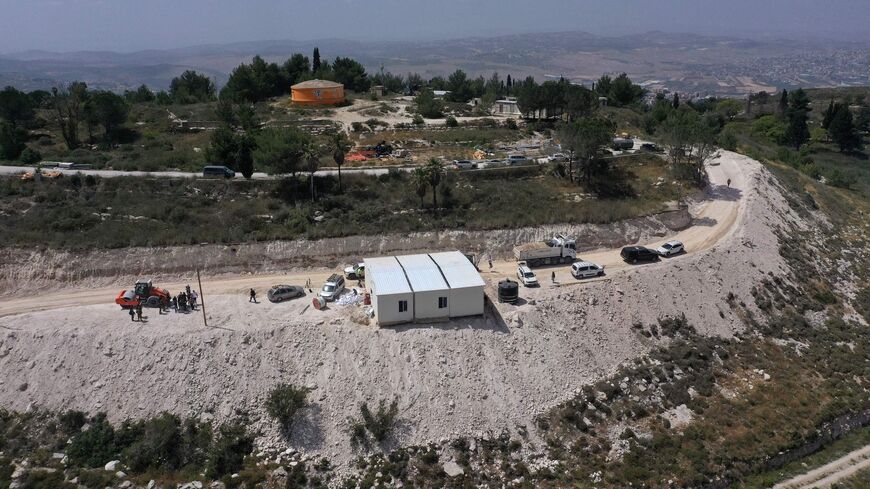An Israeli diplomatic source confirmed to Al-Monitor on Wednesday that Morocco has decided to cancel its plans to host the second Negev Forum ministerial meeting in July after Israel took action to expand West Bank settlements.
Axios and The Times of Israel broke the story, citing unnamed American and Israeli officials. Neither the United States nor Morocco had officially reacted as of the time of this writing.
The Negev Forum was initiated on March 2022, by then-Foreign Minister Yair Lapid, to create a platform for regional cooperation in the fields of health, economy, climate change, water and security. It brought together the foreign ministers of Israel, the United States, the United Arab Emirates, Bahrain, Morocco and Egypt. Jordan declined to join the group. The forum was named after its initial meeting place in Israel’s southern Negev region.
Since then, the forum's steering committee has met three times: in Bahrain last June, virtually in October and last January in Abu Dhabi. There have also been meetings by working groups.
The second ministerial meeting was originally slated for March 2023, but was delayed several times over tensions between Israel and the Palestinians. Israeli and American officials told Walla last May they were hoping to convene on June 25, but this date was also scrapped. Hopes for the mid-July meeting have now similarly evaporated.
The cancelation was reportedly due to two recent moves by the Israeli government to advance settlement activities in occupied Palestinian territory.
First, last Sunday, Finance Minister Bezalel Smotrich confirmed earlier reports of the Netanyahu government’s intention to advance construction plans for 4,5000 new housing units in West Bank settlements. Smotrich said that the Defense Ministry’s committee in charge of construction in the West Bank will meet the following week to advance the settlement plans despite objections by Washington, the European Union and the Palestinian leadership. Most of the new housing units to be authorized are located in large settlements, but a few units are situated at the Palgei Mayim outpost, described by the government as a neighborhood in the Eli settlement.
A few hours later on Sunday, the government transferred most of the authority over settlement construction from Defense Minister Yoav Gallant to Smotrich, who also serves as deputy defense minister. The government’s decision shortens the construction authorization process, enabling building plans to be advanced faster. The expansion of existing settlements and the construction of roads in the West Bank no longer require full government approval.
The cancelation casts a shadow on the rapid advancements in security cooperation, trade, culture and agriculture between Israel and Morocco since the signing of the Abraham Accords. Last Sunday, Israel’s Interior and Health Minister Moshe Arbel visited Rabat and met with Moroccan Interior Minister Abdelouafi Laftit on bringing Moroccan nursing and construction workers to Israel. Knesset speaker Amir Ohana visited Morocco at the beginning of June. While in Rabat, Ohana called on the Israeli government to recognize Moroccan sovereignty over the disputed Western Sahara region.
Israel's Science and Innovation Minister Ofir Akunis met on Wednesday in Rabat with his Moroccan counterpart Abdellatif Miraoui and the two agreed to expand bilateral cooperation on research and innovation.
The government actions placed Israel’s allies in the Arab world, including Morocco, in a difficult position. The way things look now, the two settlement moves, combined with the deadly clashes in the West Bank city of Jenin last Monday have left Morocco with little choice on hosting the Negev Forum meeting.
On Wednesday, following the Tuesday attack near the Eli settlement that cost the lives of four Israelis, Netanyahu, Gallant and Smotrich agreed to immediately advance the construction of 1,000 housing units in Eli. it is not clear if this figure is part of the 4,500 units already set to be advanced.
A US official told Al-Monitor on condition of anonymity, "We are continuing to consult with partners about a second Negev Ministerial this year," adding, "The Negev Forum demonstrates the promise and tangible benefits of regional integration, bringing the region together to discuss solutions to shared challenges."
Jared Szuba contributed to this report.








